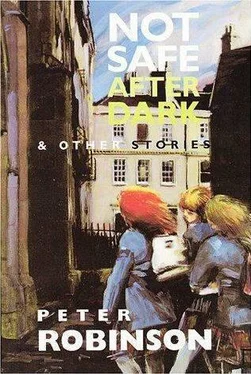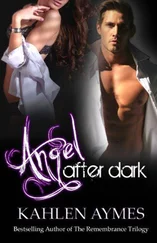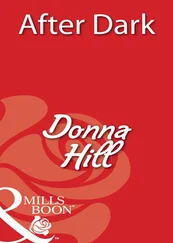
Peter Robinson
Not Safe After Dark
© 1998
Individual stories first published in different form as: ‘Summer Rain’ © Ellery Queen's Mystery Magazine , New York, December 1994. An Inspector Banks story; ‘Fan Mail’ © Cold Blood II , ed. Peter Sellers (Mosaic Press: Oakville, Canada, 1989); ‘Innocence’ © Cold Blood III , ed. Peter Sellers (Mosaic Press: Oakville, Canada, 1990); ‘Murder in Utopia’ © Crime Through Time III , ed. Sharan Newman (Berkeley, New York, July 2000); ‘Not Safe After Dark’ © Criminal Shorts , ed. Howard Engel and Eric Wright (Macmillan: Toronto, Canada, 1992); ‘Just My Luck’ © Bouchercon XXII Souvenir Programme Book , Toronto, 1992; ‘Anna Said…’ © Cold Blood IV , ed. Peter Sellers (Mosaic Press: Oakville, Canada, 1992). An Inspector Banks story; ‘Missing in Action’ © Ellery Queen's Mystery Magazine , New York, November 2000; ‘Memory Lane’ © Blue Lightning , ed. John Harvey, Slow Dancer Press (UK), 1998; ‘Carrion’ © No Alibi , ed. Maxim Jakubowski (Ringpull: Manchester, 1995); ‘April in Paris’ © Love and Death , ed. Carolyn Hart (Berkeley, New York), February 2001; ‘The Good Partner’ © Ellery Queen's Mystery Magazine , New York, March 1994. An Inspector Banks story; ‘Some Land in Florida’ © Ellery Queen's Mystery Magazine , New York, Christmas issue, 1996; ‘The Wrong Hands’ © Ellery Queen's Mystery Magazine , New York, April 1998; ‘The Two Ladies of Rose Cottage’ © Malice Domestic 6 , ed. Anne Perry (New York: Pocket Books, 1997); ‘Lawn Sale’ © Cold Blood V , ed. Peter Sellers and John North (Mosaic Press: Oakville, Canada, 1994); ‘Gone to the Dawgs’ © The Mighty Johns , ed. Otto Penzler (New Millennium Press, Beverly Hills, CA), summer 2002; ‘In Flanders Fields’ © 1998, first published in Not Safe After Dark and Other Stories , by Peter Robinson, Crippen & Landru (Virginia), October 1998; ‘The Duke’s Wife’ © Much Ado About Murder , ed. Anne Perry (Berkeley, New York, December 2002).
‘Going Back’ first published 2004; © Eastvale Enterprise Inc.
I remember once talking to a famous crime writer about getting a short story out of my home being burgled, and she replied, ‘I get a short story out of everything.’ That certainly put me in my place. It also serves as a useful opening to this introduction because some writers I know find that short stories come easily, whereas I don’t.
I think this is partly because I have become so used to thinking in terms of the novel, with the broad canvas it offers, that it’s hard to work in miniature. I carry a novel around in my head for a long time – at least a year, waking and sleeping – and this gives me time to get under the skin of the characters and the story. Also, plotting is probably the most difficult part of writing for me, and being asked to write a short story, which so often depends on a plot twist, a clever diversion or a surprising revelation, guarantees that I’ll get the laundry done and probably the ironing, too.
That said, there is nevertheless a great deal of satisfaction to be had from writing short stories. Partly, of course, it’s the quick pay-off. A short story is, by definition, short . Consequently, you get that wonderful rush of having finished something far more quickly than you do with a novel.
But it isn’t only the instant gratification that makes short stories so attractive to me, it’s also the new possibilities they offer. When you work primarily as a series writer, as I do, most of your time goes into the creation of that series. That, of course, is as it should be: I wouldn’t be writing the Inspector Banks books if I didn’t want to. But there’s always the temptation to try something different, and to risk a week or so doing this is a lot easier than to risk a year or more on a project that might easily meet with rejection.
Short stories also offer a wonderful opportunity for the series writer to spread his or her wings and fly to new, exotic places, to meet different people and to try out different techniques. The Inspector Banks series is set, for the most part, in Yorkshire, but these stories range from Toronto to Paris, from Florida to California. The Banks books are third-person narratives, while many of the stories are first-person. Banks is a policeman, but you’ll find very few policemen between these covers. A number of the stories, such as ‘Murder in Utopia’ and ‘Missing in Action’, are set in different periods of history.
While short stories come from the same seeds as novels, usually they come as ideas that can only be developed into short stories. ‘Innocence’ was one exception to this rule. After writing the story, I couldn’t let go and went on to write an entire novel from Reed’s point of view, expanding the events of the story, but my publishers turned it down. I put it aside for a while, then thought that perhaps if Banks was there it might work better. Thus, Reed became Owen and ‘Innocence’ (1990) became Innocent Graves (1996). Both the short story and the novel won Arthur Ellis awards in Canada.
A sense of place has always been important in my work and is no less so here. In Florida one December I witnessed a Christmas singalong around the swimming pool, Santa in his usual outfit leading the crowd on electric piano. Only this took place in twenty-seven-degree heat and they were singing ‘White Christmas’, something I think they don’t usually have down there. Needless to say, the absurdity of the scene was not lost on me, and in ‘Some Land in Florida’ Santa ends up in the pool with his electric piano thrown after him – still plugged in!
The first historical story I wrote, ‘The Two Ladies of Rose Cottage’, was inspired by both a place and by my interest in Thomas Hardy. I once paid a visit to the house where he was born in Bockhampton, Dorset, and stood in the room where he was cast aside as dead by the doctor who delivered him, only to be revived by a quick-thinking nurse. As I looked out of his upstairs window on much the same view he often enjoyed as he wrote his early books, this short story of murder and deceit ranging over more than a hundred years began to form in my mind, and Hardy himself even makes a brief appearance in it.
Other stories have their origins in such diverse sources as an unusual piece of information (‘Carrion’), fragments of dreams (‘Fan Mail’), stories recounted by others (‘The Wrong Hands’ and ‘Memory Lane’) and research for other works. I doubt that I would ever have written ‘In Flanders Fields’ or ‘Missing in Action’, for example, if I hadn’t spent so much time researching the Second World War for In a Dry Season .
Sometimes, as in ‘Gone to the Dawgs’ and ‘The Duke’s Wife’, I was asked for a story on a specific topic – in these cases, American football and Shakespeare respectively. But no matter how much or how little is given, or demanded, there is always a lot to change and more to add, all subjected to the constant ‘What if?’ of the writer’s imagination.
While I did mention earlier that most of the stories here represent a break from Inspector Banks, there are three Banks short stories in the collection. In a way, they were the hardest for me to write because I’m so used to giving Banks plenty of space. There’s little room for significant character or plot development in a short story, or for the creation of multiple points of view. Still, it was impossible to resist the temptation to try, especially to have Banks attempt to solve the mystery of a man who claims to have been murdered in a previous lifetime, as happens in ‘Summer Rain’. You’ll have to judge the results for yourself.
Читать дальше











![Джеймс Чейз - Not Safe to Be Free [= The Case of the Strangled Starlet]](/books/417649/dzhejms-chejz-not-safe-to-be-free-the-case-of-the-thumb.webp)

